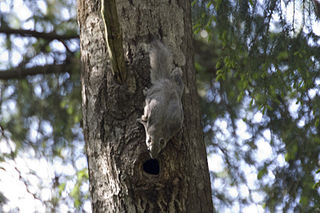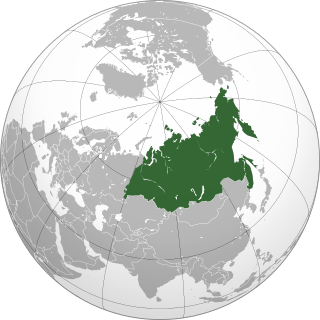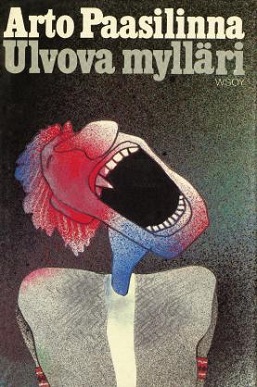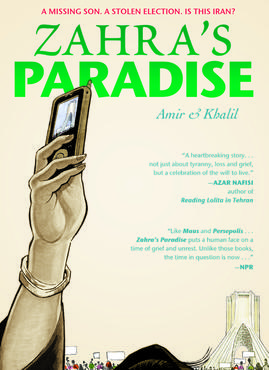
The Uralic languages form a language family of 38 languages spoken natively by approximately 25 million people, predominantly in Europe and northern Asia. The Uralic languages with the most native speakers are Hungarian, Finnish, and Estonian. Other significant languages with fewer speakers are Erzya, Moksha, Mari, Udmurt, Sami, Komi, and Vepsian, all of which are spoken in northern regions of Scandinavia and the Russian Federation.

Ural-Altaic, Uralo-Altaic or Uraltaic is a linguistic convergence zone and former language-family proposal uniting the Uralic and the Altaic languages. It is generally now agreed that even the Altaic languages do not share a common descent: the similarities among Turkic, Mongolic and Tungusic are better explained by diffusion and borrowing. Just as Altaic, internal structure of the Uralic family also has been debated since the family was first proposed. Doubts about the validity of most or all of the proposed higher-order Uralic branchings are becoming more common. The term continues to be used for the central Eurasian typological, grammatical and lexical convergence zone.

The Tatars is an umbrella term for different Turkic ethnic groups bearing the name "Tatar". Initially, the ethnonym Tatar possibly referred to the Tatar confederation. That confederation was eventually incorporated into the Mongol Empire when Genghis Khan unified the various steppe tribes. Historically, the term Tatars was applied to anyone originating from the vast Northern and Central Asian landmass then known as Tartary, a term which was also conflated with the Mongol Empire itself. More recently, however, the term has come to refer more narrowly to related ethnic groups who refer to themselves as Tatars or who speak languages that are commonly referred to as Tatar.

The United States does not have an official language at the federal level, but the most commonly used language is English, which is the de facto national language. It is also the language spoken at home by the great majority of the U.S. population. Many other languages are also spoken at home, especially Spanish, according to the American Community Survey (ACS) of the U.S. Census Bureau; these include indigenous languages and languages brought to the U.S. by people from Europe, Africa, and Asia. However, the majority of foreign language speakers are bilingual or multilingual, and they commonly speak English. Although 21.5% of U.S. residents report that they speak a language other than English at home, only 8.2% speak English less than "very well." Several other languages, notably creoles and sign languages, have developed in the United States. Approximately 430 languages are spoken or signed by the population, of which 177 are indigenous to the area. At least fifty-two languages formerly spoken in the country's territory are now extinct.

Tatar is a Turkic language spoken by Tatars mainly located in modern Tatarstan, as well as Siberia. It should not be confused with Crimean Tatar or Siberian Tatar, which are closely related but belong to different subgroups of the Kipchak languages.

The Eskaleut, Eskimo–Aleut or Inuit–Yupik–Unangan languages are a language family native to the northern portions of the North American continent and a small part of northeastern Asia. Languages in the family are indigenous to parts of what are now the United States (Alaska); Canada including Nunavut, Northwest Territories, northern Quebec (Nunavik), and northern Labrador (Nunatsiavut); Greenland; and the Russian Far East. The language family is also known as Eskaleutian, Eskaleutic or Inuit–Yupik–Unangan.

A sled dog is a dog trained and used to pull a land vehicle in harness, most commonly a sled over snow.

Jaan Kross was an Estonian writer. He won the 1995 International Nonino Prize in Italy.

Finns or Finnish people are a Baltic Finnic ethnic group native to Finland.
Central Siberian Yupik, is an endangered Yupik language spoken by the indigenous Siberian Yupik people along the coast of Chukotka in the Russian Far East and in the villages of Savoonga and Gambell on St. Lawrence Island. The language is part of the Eskimo-Aleut language family.

Multilingualism is the use of more than one language, either by an individual speaker or by a group of speakers. It is believed that multilingual speakers outnumber monolingual speakers in the world's population. More than half of all Europeans claim to speak at least one language other than their mother tongue; but many read and write in one language. Multilingualism is advantageous for people wanting to participate in trade, globalization and cultural openness. Owing to the ease of access to information facilitated by the Internet, individuals' exposure to multiple languages has become increasingly possible. People who speak several languages are also called polyglots.

The Siberian flying squirrel is an Old World flying squirrel ranging from the Baltic Sea in the west, throughout Northern Asia to the coast of the Pacific Ocean in the east. It is the only species of flying squirrel in Europe and is considered vulnerable in the European Union where it occurs only in Estonia and Finland. In Latvia, it was last sighted in 2001 and has been considered to be locally extinct since 2013.

Siberia is a vast region spanning the northern part of the Asian continent, and forming the Asiatic portion of Russia. As a result of the Russian conquest of Siberia and of the subsequent population movements during the Soviet era (1917-1991), the modern-day demographics of Siberia is dominated by ethnic Russians (Siberiaks) and other Slavs. However, there remains a slowly increasing number of indigenous groups, accounting for about 5% of the total Siberian population, some of which are closely genetically related to indigenous peoples of the Americas.

Sofi-Elina Oksanen is a Finnish writer and playwright. Oksanen has published six novels, of which "Purge" has gained the widest recognition. She has received several international and domestic awards for her literary work. Her work has been translated into more than 40 languages and sold more than two million copies. Oksanen has been called "Finnish-Estonian Charles Dickens" and her work has often been compared to Margaret Atwood's novels. Oksanen is actively involved in public debate in Finland and comments on current issues in her columns and various talk shows.

The Baltic Finnic or Balto-Finnic peoples, also referred to as the Baltic Sea Finns, Baltic Finns, sometimes Western Finnic and often simply as the Finnic peoples, are the peoples inhabiting the Baltic Sea region in Northern and Eastern Europe who speak Finnic languages. They include the Finns, Estonians, Karelians, Veps, Izhorians, Votes, and Livonians. In some cases the Kvens, Ingrians, Tornedalians and speakers of Meänkieli are considered separate from the Finns.

The Howling Miller is a 1981 novel by the Finnish author Arto Paasilinna.

Zahra's Paradise is a webcomic and graphic novel by Amir Soltani and Khalil set in modern Iran. It has been described as a political webcomic dealing with real-time events. Its story follows a mother searching for her son, who disappeared around the time of Iran's 2009 elections. Serialized online beginning in early 2010, Zahra's Paradise was published in hardcover format in 2011 and has received numerous positive reviews in mainstream press and blogs.

Ag Apolloni is an Albanian writer, poet, playwright, scholar and essayist. He is a professor at the University of Prishtina. His literary works are distinguished for their dramatic dimension, philosophical treatment and critical attitude towards history, politics and society.
Sara Wesslin is a Skolt Saami journalist and news anchor from Finland and a strong advocate of the Skolt Sami language, her grandmother Olga's mother tongue. She took on the Finnish Ministry of Education and Culture to secure funding from Finland for the Nordic Resource Centre for the Sami languages.

Siberian Finnish or Korlaka is the form of Finnish spoken in Siberia by the Siberian Finns. Siberian Finnish is an umbrella name, this name refers to at least two languages/dialects.


















